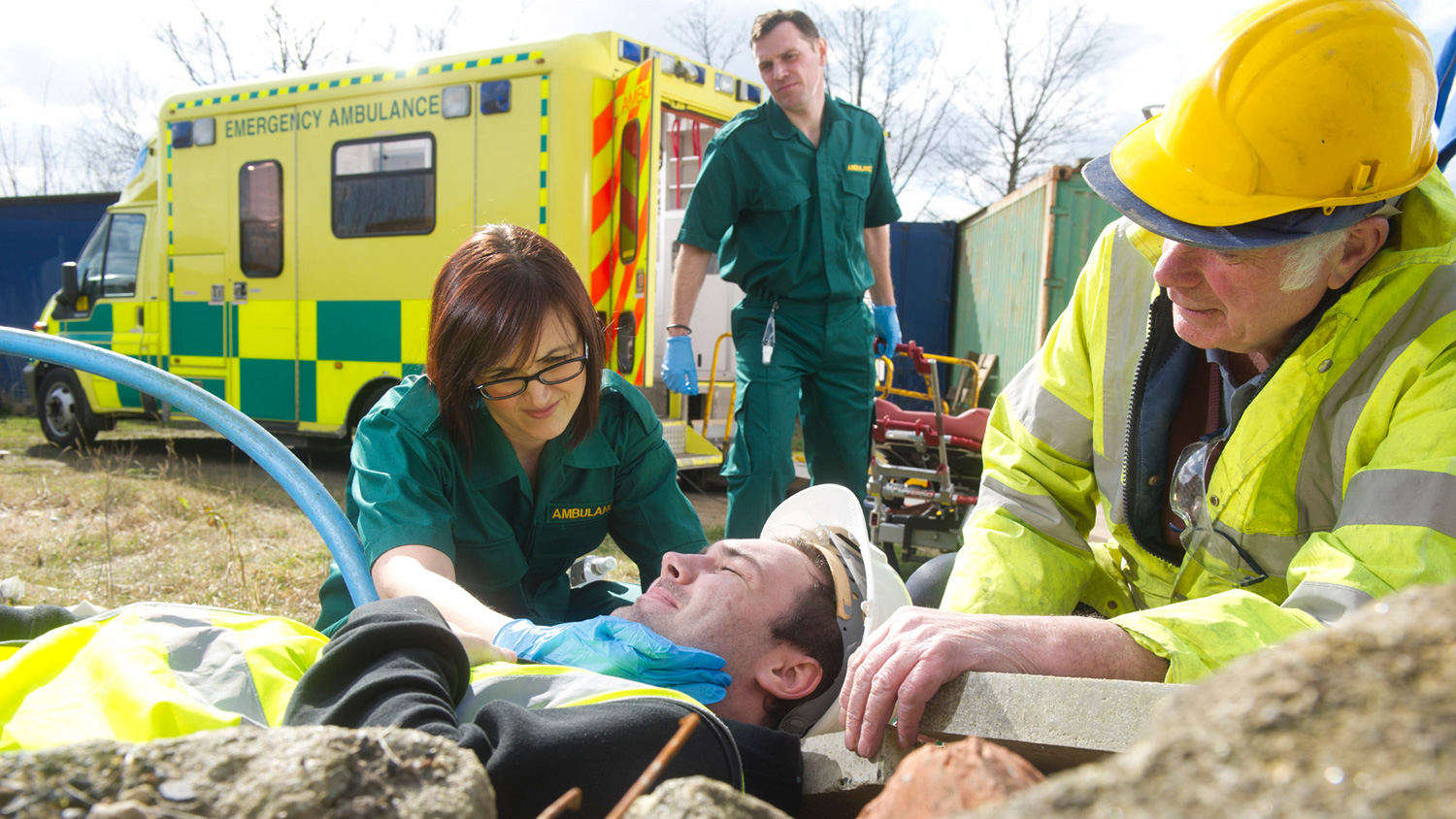
Accident reporting: the role of the FM
If someone has died or has been injured because of a work-related accident, this may have to be reported under the Reporting of Injuries, Diseases and Dangerous Occurrences Regulations (RIDDOR). But who is responsible for reporting the incident? Aside from the more obvious employer, health and safety manager or HR department, the person in control of the premises – the facilities manager (FM) – where the accident occurred, shoulders much of the responsibility for reporting the incident.
The HSE clarifies:
If you are an employer, you must report any work-related deaths, and certain work-related injuries, cases of disease, and near misses involving your employees wherever they are working.
If you are in control of premises, you must report any work-related deaths, certain injuries to members of the public and self-employed people on your premises, and dangerous occurrences (some near miss incidents) that occur on your premises.
There appears to be some crossover as to who is responsible for what, so in this article we consider how the role of the facilities manager works alongside those of the HR manager and health and safety manager in reporting and acting on workplace accidents.
Facilities manager v HR manager
Facilities managers are responsible for:
- Immediate response: FMs are responsible for promptly responding to accidents or incidents within the workplace. They assess the situation, ensure the safety of affected individuals, and provide necessary first aid or medical assistance.
- Documentation: FMs accurately document details of the accident, including the date, time, location, and individuals involved. Proper record-keeping is crucial for reporting purposes.
- RIDDOR compliance: FMs must adhere to the Reporting of Injuries, Diseases, and Dangerous Occurrences Regulations (RIDDOR). This legal requirement involves reporting specific incidents to the relevant authorities.
- Classification of Injuries: FMs need to understand the classification of injuries, especially the concept of “specified injuries” under RIDDOR.
- Work-related illnesses: Reporting cases of work-related illnesses also falls within their purview.
- Dangerous occurrences: FMs report incidents that could have caused harm, even if no actual injury occurred.
- Incapacitation: Accidents resulting in worker incapacitation for more than three days should be recorded.
Human resources (HR) are responsible for:
- Legal obligations: HR departments must comply with legal policies related to health and safety.
- Management of Health and Safety at Work Regulations (MHSWR) 1999: HR ensures adequate health and safety measures are in place.
- Health and Safety at Work etc. Act 1974: HR writes, enforces, and updates health and safety policies, conducts regular risk assessments, and addresses any discrepancies.
- Support and reporting: In the event of an accident, HR supports both the manager and the injured employee. They ensure health and safety policies and procedures are followed, and they assist in writing and filing adequate accident reports.
- Health and safety culture: HR professionals are responsible for establishing and maintaining a culture of high health and safety (H&S) values within the workplace. They ensure that H&S practices are followed.
In summary, while FMs focus on immediate response, documentation, and compliance, HR professionals oversee the overall health and safety culture, legal obligations, and support during accidents. Both roles are critical for maintaining workplace safety and compliance.
Facilities manager v health and safety manager
Facilities managers and health and safety managers have distinct roles and responsibilities when it comes to reporting accidents.
Facilities Manager (FM):
- Immediate response: FMs typically coordinate the immediate response to accidents within the facility, ensuring that appropriate first aid is administered and emergency services are called if necessary.
- Documentation and investigation: FMs document the details of the accident, including the time, date, location, and nature of the incident. They may conduct preliminary investigations to identify any facility-related factors that contributed to the accident, such as equipment malfunctions or hazardous conditions.
- Reporting to authorities: FMs are responsible for reporting accidents to relevant internal and external authorities, such as safety officers, regulatory agencies (such as the Health and Safety Executive - HSE), or insurance providers, in compliance with legal requirements.
- Implementing corrective measures: Based on the investigation findings, FMs implement corrective measures to address safety deficiencies and prevent similar accidents in the future. This may involve repairing equipment, enhancing safety protocols, or providing additional training to staff.
Health and safety manager:
- Risk assessment and prevention: Health and safety managers are responsible for conducting risk assessments to identify potential hazards within the workplace and implementing measures to prevent accidents from occurring in the first place.
- Policy development: H&S managers develop and implement health and safety policies and procedures to ensure compliance with UK regulations, such as the Health and Safety at Work Act 1974 and associated regulations.
- Training and education: Health and safety managers provide training and education to employees on safety procedures, hazard recognition, and accident prevention measures.
- Accident investigation and analysis: They lead or participate in detailed investigations of accidents to determine their root causes, contributing factors, and any systemic issues that need to be addressed.
- Reporting and compliance: Health and safety managers ensure that all accidents are properly reported to the appropriate authorities, such as the HSE, and that records are maintained in accordance with legal requirements.
- Continuous improvement: They work to continuously improve health and safety performance within the organisation through regular inspections, audits, and reviews of policies and procedures.
While FMs primarily focus on the immediate response and physical aspects of accident reporting within the facility, health and safety managers take a broader approach, encompassing risk assessment, policy development, training, and continuous improvement of health and safety practices across the organisation. Both roles are essential for ensuring a safe and healthy work environment in compliance with UK regulations.
International Workplace’s Accident and incident reporting course helps learners develop their understanding and skill set so they are able to deal with the aftermath of an accident or incident and make sure it is properly reported and investigated.






